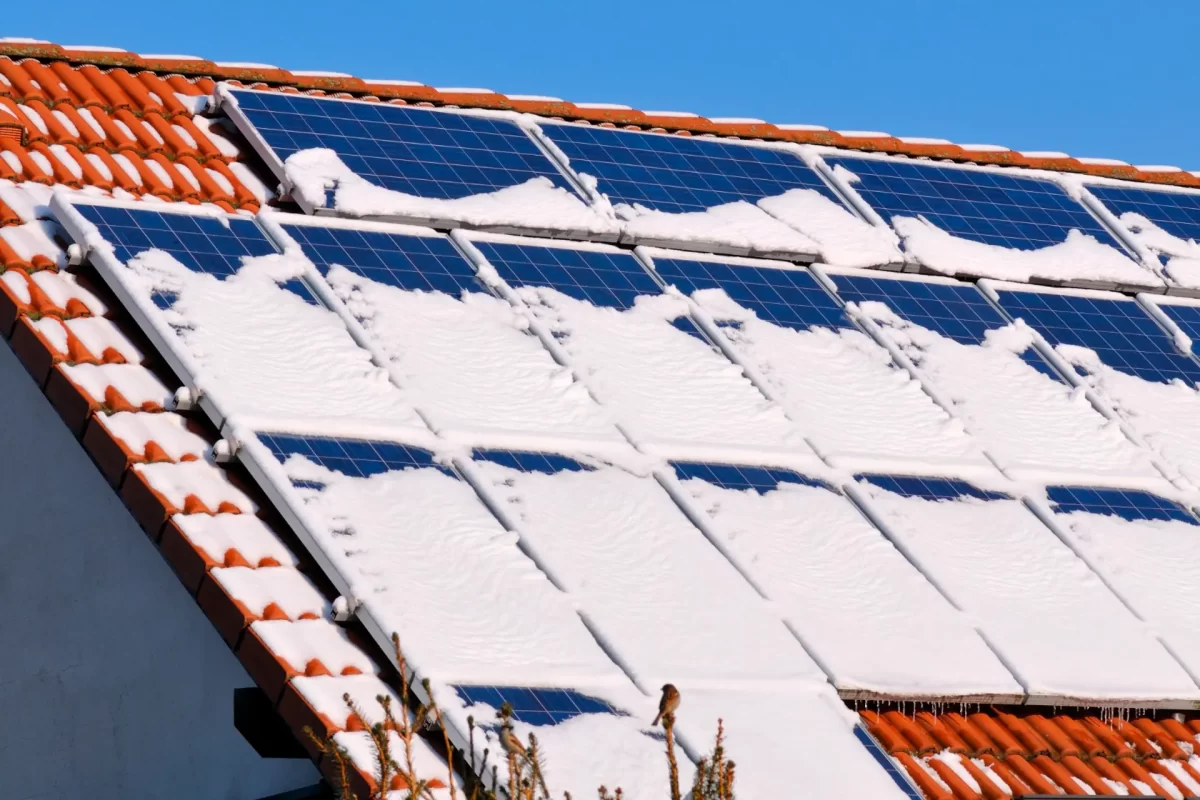
即使是最有韧性的房主也会被寒冷的记忆吓倒, 过去的雪冬. 如果您正在考虑使用太阳能, 您可能担心太阳能电池板和雪的兼容性. 恰恰相反. 如果太阳能被视为一项投资, 那么它应该全年创造利润, 与其他投资一样. 幸运的是, 许多人都有太阳能电池板和雪, 英国一些最受欢迎的太阳能地区冬季多雪. 不要让寒冷的天气阻止您获得太阳能!
太阳能电池板在冬天起作用吗?
与太阳能电池板在冬季不起作用的普遍看法相反, 较冷的温度往往会增加太阳能电池板的输出. 雪也能反射光, 从而提高光伏性能. 如果积雪覆盖太阳能电池板,冬天只会阻碍太阳能发电.
雪对太阳能电池板的效率有何影响?
无需居住在西班牙等炎热国家即可获得高太阳能电池板性能. 在考虑为您的家安装太阳能电池板时, 请记住,即使我们又经历一个非常严酷的冬天, 最坏的情况只持续三个月, 所以你的阳光不足和大雪的日子是有限的. 而且距离赤道越远, 你夏天的日子越长, 所以虽然你在冬天产生的能量可能会稍微减少, 夏天你可以多晒太阳来弥补.
经常, 太阳能电池板积雪问题不大. 但, 在建造住宅太阳能系统之前,您应该了解一些关于冬季天气影响的事情:
所有太阳能电池板都能承受一定的重量, 雪通常太轻,不会造成问题. 所有太阳能电池板均经过压力测试,以确定其质量和耐用性. 较高的压力等级表明您的面板能够更好地承受降雪的重量.
如果雪覆盖了您的面板, 他们不能发电, 但使用适当的设备清除它们很简单. 太阳能电池板需要阳光才能发电, 因此,如果你的太阳能电池板被雪覆盖, 他们不会发电. 大多数面板都是倾斜的, 所以雪会自然落下来, 但这可能需要时间. 您可以通过购买太阳能电池板除雪耙或类似的仪器来控制这种情况,这些仪器旨在清除太阳能电池板上的积雪而不造成损坏.
实际上, 寒冷的, 晴朗的天气是太阳能电池板的理想选择. 冬季实际上是太阳能生产的最佳月份, 前提是你的面板没有被雪覆盖. 与大多数电子设备一样, 太阳能电池板在寒冷的温度下比在温暖的温度下运行效率更高. 这意味着您的电池板将在冬季短暂的白天为每个宝贵的阳光时间产生更多的电力.
不仅像西班牙和葡萄牙这样阳光明媚的国家对太阳能有意义. 实际上, 英国位列第八 10 世界太阳能国家. 这种情况也发生在冬季安装太阳能装置的比例较高的情况下. 部分原因是电价是太阳能节约中最有影响力的因素之一; 你的电费越高, 使用太阳能可以节省的钱越多.
需要更多证据? 考虑德国, 其阳光照射量与阿拉斯加相当. 这个北欧国家十多年来在太阳能电池板安装方面一直处于全球领先地位, 太阳能对其国家能源结构做出了重大贡献. 虽然其他国家, 比如美国和中国, 正在开始迎头赶上, 德国的成就是太阳能如何在寒冷天气国家发挥作用的鲜明例子. 在全球范围内, 太阳能电池板和雪绝对是相配的.
现在您知道太阳能电池板可以在冬天发电, 考虑这个: 如果您是正在寻找最佳价值的房主, 冬季是购买太阳能的最佳时机. 填写下面的表格或致电 01613307739 了解您可以节省多少钱!
